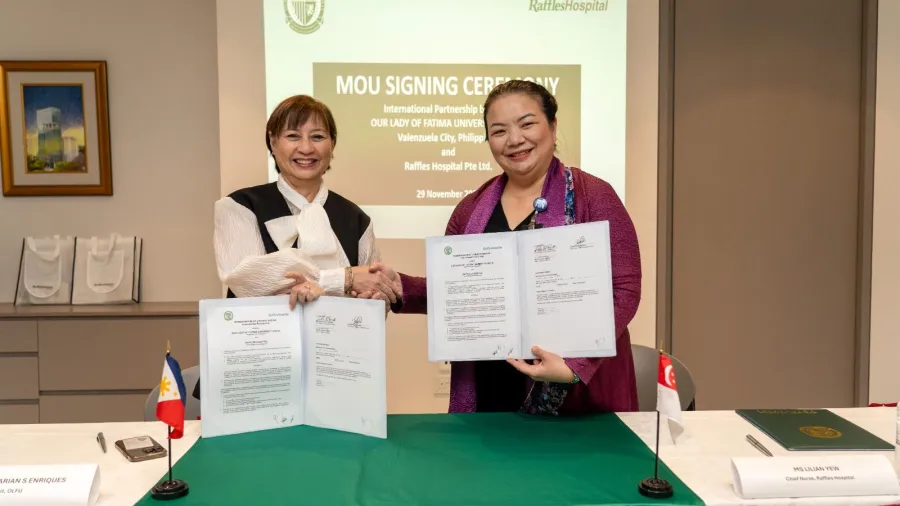
Raffles Medical Group, OLFU ink MoU for training and research
Specialised training areas include emergency and critical care.
Singapore’s Raffles Medical Group and the Philippines’ Our Lady of Fatima University (OLFU) have signed a memorandum of understanding (MoU) for training and joint research initiatives.
Through the MoU, OLFU nursing students and faculty will have access to international observational clinical placement opportunities, specialised training in emergency and critical care, elderly integrated care, and collaborative research.
Raffles Medical Group was represented by Chief Nurse Lilian Yew Siew Mee, whilst OLFU was represented by University President Caroline Marian Enriquez and Head of Digital and Social Media Vicente Santos III.



















 Advertise
Advertise







